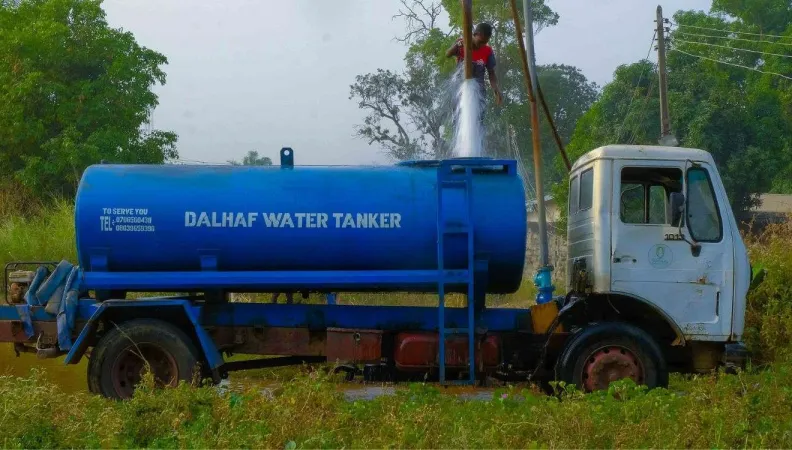Share the page

Access to drinking water is an important factor in socio-economic development and in the reduction of inequalities. Despite its economic weight, Nigeria has some of the worst performances in water services in West Africa. According to the United Nations Joint Monitoring Programme (JMP), in 2020, 22% of the Nigerian population had a safely managed drinking water supply.
Inequalities in access to water are primarily geographical (57 % access in rural areas versus 86 % in urban areas) and social (46 % access for the poorest households versus 92 % for the richest). According to 2021 figures, 25 % of the Nigerian population still depends on unprotected wells and unprotected sources, or on the collection of untreated surface water (lakes, ponds, rivers and streams).
Urban water supply is a historic sector of intervention for AFD in Nigeria, with a project in 2008, in co-financing with the World Bank, on Lagos and Cross-River states, completed in 2018.
In the continuity of this first intervention, the current projects for the improvement of urban water services aim to improve the living conditions of the inhabitants of the state capitals by improving the drinking water service.
he living portfolio amounts to USD 266 million to the Federal Ministry of Finance and is implemented by the water authorities of each state (Water Boards/ Water Corporations):
- Ogun State (Abeokuta) – goal to improve access to water for 100,000 people
- Enugu State (Enugu City) – goal to improve access to water for 130,000 people
- Plateau State (Jos) – goal to improve access to water for 130,000 people
- Ondo State (Akure) – goal to improve access to water for 130,000 people
- Kano State (Kano City) – goal to improve access to water for 1,500,000 people, including half of women
The Federal Ministry of Water Resources has a budget of USD 1 million to coordinate and supervise the implementation of projects in these 5 states, on behalf of the federal government.
These projects are part of the third phase of the national reform (NUWSRP III) and have the specific objectives of (i) improving the coverage rate and the quality of drinking water services in the cities of intervention; (ii) improve the financial independence of local water authorities by increasing their revenues; (iii) accompany the reform of the governance of the sector in the states of intervention.
In Nigeria, the water sector enables AFD to engage well beyond SDG 6 (water and sanitation), participating in SDG 3 (health) by improving the quality of drinking water. The sector also contributes to the achievement of SDG 5 (gender), through the reduction of the hardship related to the supply of water to the household that falls to women. Finally, this sector contributes to the achievement of SDG 10 (reducing inequalities) through the definition of “pro-poor” pricing in funded projects.
In 2022, AFD Group committed €1.2 billion to the water and sanitation sector, representing 10% of the Group’s commitments. Discover all the key figures of its action in the 2022 business review: Water and Sanitation - 2022 Activity Report | AFD - Agence Française de Développement.
